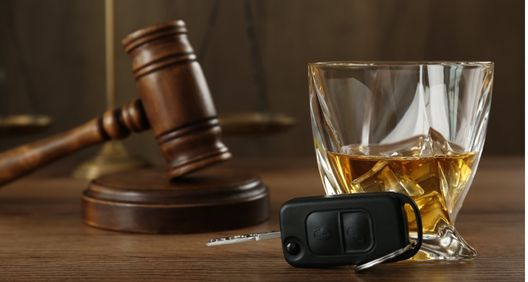Schedule a Consultation
Texas DWI Laws And Penalties – All You Need To Know

Every state upholds different laws pertaining to driving under the influence (DUI) or driving while intoxicated (DWI). Texas DWI laws are quite strict compared to other states, and even a first conviction can carry severe consequences for the defendant. If you are arrested and charged with DWI, a DWI defense attorney is the best asset to have on your side. While some people make mistakes and commit DWI offenses in the spur of the moment, knowing how the state handles these cases can hopefully encourage drivers to be more cautious, avoid unnecessary risks, and prevent devastating accidents while also limiting the chance of facing arrest and prosecution.
Understanding DWI Arrests
A police officer in Texas may conduct a traffic stop if they observe a driver breaking traffic laws, driving erratically, or disrupting the flow of traffic. A police officer may request that a driver submit to a preliminary alcohol screening (PAS) test by blowing into a breathalyzer device. Many drivers assume the state’s implied consent law for DWI chemical testing applies to PAS, but this isn’t necessarily true. A driver must submit to a chemical test after they have been lawfully arrested for DWI. The exceptions include drivers on probation for prior DWI offenses and drivers under the age of 21 suspected of driving under the influence of alcohol.
Every state uses the blood-alcohol concentration (BAC) measurement system to determine whether a defendant is intoxicated behind the wheel. Any BAC level over .08% constitutes DWI in Texas, and the maximum BAC for commercial vehicle drivers is .04%. There is a zero-tolerance policy for drivers under 21 who are not legally allowed to drink, so any detectable BAC will result in a DWI charge.
A police officer must establish probable cause and follow due process to conduct a lawful arrest for a suspected DWI. If you find yourself in this situation, you must submit to a chemical test to confirm your intoxication level or risk an automatic suspension of your driver’s license and harsher penalties if you are later convicted of DWI.
Penalties for DWI Conviction in Texas
Texas follows a similar structure of laws to most other US states in that defendants convicted of DWI offenses face increasingly harsher penalties with multiple convictions. A first conviction for a standard DWI with no aggravating factors such as injury or death will likely lead to a penalty of up to 180 days in county jail, a $2,000 fine, and a mandatory license suspension of 90 days to one year.
These penalties increase significantly when a driver has a prior DWI conviction within a short time. Penalties also increase severely when a driver has caused severe injury or death while driving under the influence of drugs or alcohol. Judges handling sentencing in these cases also have the discretionary power to recommend specific alternative penalties as they deem appropriate, such as compelling a driver shown to have a substance abuse disorder to attend a rehabilitation program. It’s natural to worry about the worst possible penalties you could face if you are convicted of DWI in Texas. Remember, when you are arrested, you have the right to remain silent, and you should fully exercise this right so you do not say anything that will worsen your situation. You also have the right to legal counsel and must reach out to a defense attorney you can trust as soon as possible. Your attorney can potentially reveal options for defending against the DWI charge you hadn’t considered on your own, and they will be a valuable source of guidance throughout all stages of your case.
FAQs About Texas DWI Laws and Penalties
Is Jail Time Mandatory for a First DWI in Texas?
Texas state law recommends a minimum mandatory jail sentence of three days for a first DWI conviction. However, most judges are willing to consider probation if a first-time defendant has not hurt or killed anyone. If the defendant commits an aggravated DWI, DWI with injury, or has a record of past DWIs, jail time is all but certain. A good defense attorney can still help their client in this situation in several ways, including potentially securing a penalty reduction.
Can I Have a DWI Reduced in Texas?
It’s natural to fear the worst possible penalties if you are convicted of a DWI in Texas; most judges are willing to consider leniency for a first offense as long as the defendant clearly shows remorse and willingness to accept responsibility for their actions. However, you can challenge your DWI charge in various ways, including calling the validity of your chemical test into question. If the prosecution cannot make a compelling enough case, they could be forced to reduce the defendant’s charge.
When Will a DWI Conviction Drop Off My Record?
In Texas, a DWI conviction will remain on your criminal record permanently. It’s possible to have the charge expunged if your case was dismissed without a conviction. If you were convicted, the only way to have the charge taken off your record would be through a successful petition for sealing the record with an order of nondisclosure. Your Houston defense attorney can help you determine whether you would be eligible for this option.
Is It Really Necessary to Hire a Private Defense Attorney for a Texas DWI Case?
It is vital to have legal counsel defending you in any DWI case, and if you are able to hire a private defense attorney, they can offer a higher level of representation than a public defender could provide. Consider the choice to hire a defense attorney as an investment in your own future; they can potentially help you avoid conviction or, at the very least, reduce your penalty. A public defender may do their best in your case, but the nature of their work leaves them very little flexibility to offer clients much individual attention.
The Law Office of Joseph Ruiz, PLLC, can provide the client-focused defense counsel you need for a DWI case, regardless of whether it is your first criminal charge or if you have an extensive criminal record. We develop individualized defense strategies for every client we accept, and we can leverage our substantial experience in Texas criminal defense in your case. Contact us today to schedule a consultation and learn more about how our firm can empower your defense.




